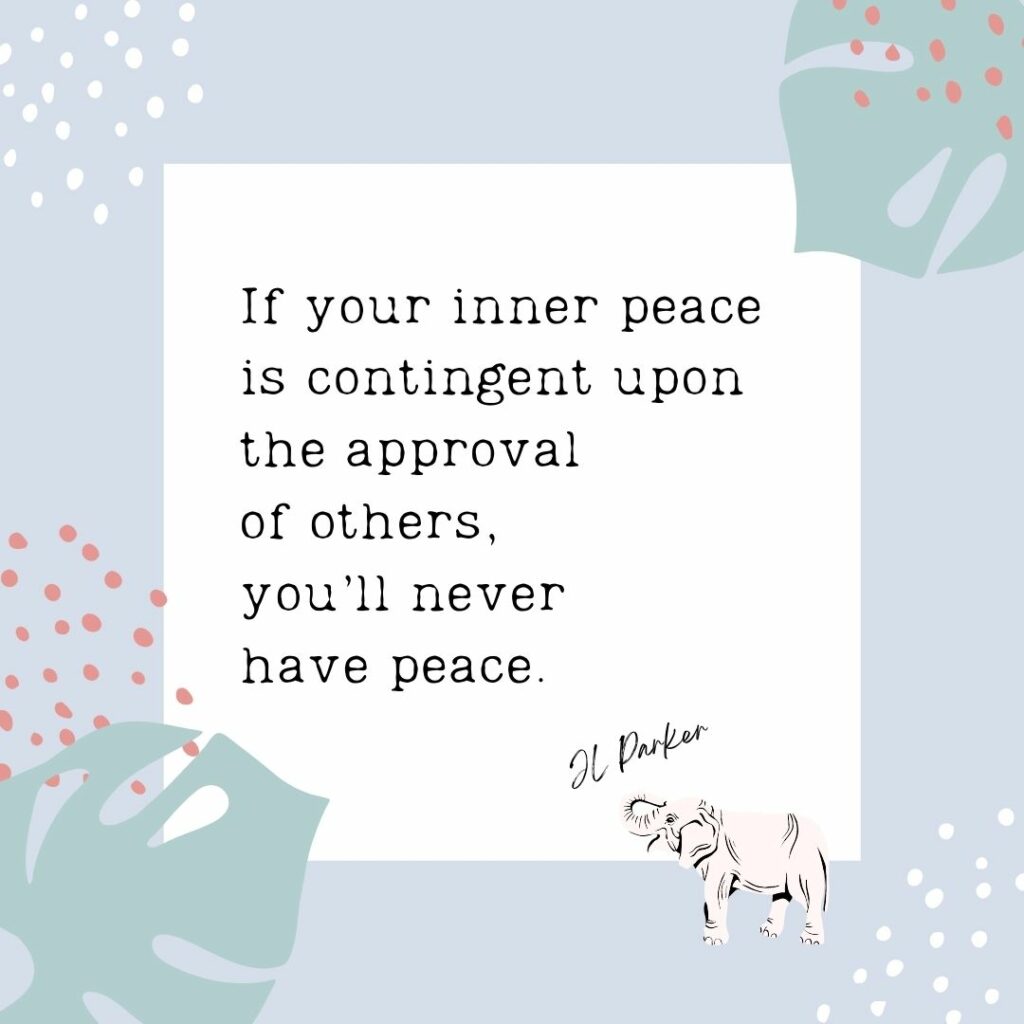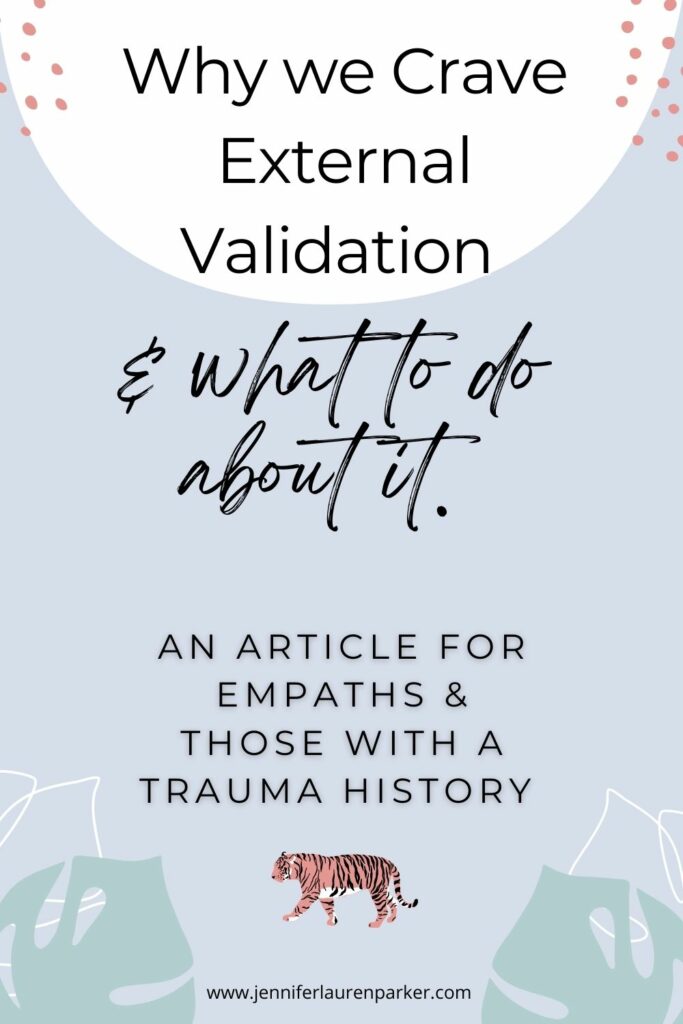
It’s normal to want people to approve of us. In fact, it’s likely something hard-wired into humans as a way to keep us safe. Throughout history, rejection from the tribe would have been devastating and probably deadly. And let’s face it, it can still be pretty devastating to have people reject us.
As empaths, we have another layer of this. We tend to be very tuned in to other people’s feelings and energy. We notice little shifts that may indicate something has changed. So if someone isn’t happy with us, we’re pretty quick to pick up on it. This can make us feel a little uneasy, or even desperate to get them back on our wavelength.
We may be really used to functioning this way, which makes sense. After all, for many of us empaths, there was a time in our past when we felt that walking on eggshells was the safest option. There may have been someone or many people in our lives who were volatile, and we didn’t feel safe (or quite literally were not safe) if they weren’t happy.
Fast forward to the present, when someone seems to be unhappy with us, the visceral memories of those past experiences become activated. We may feel very panicky. Even if the people we are around are safe, our system is reacting as though we are in the past. If we aren’t conscious of it, we just keep repeating the patterns of sacrificing our needs, wants, and opinions to receive the validation that feels very necessary in the moment.
We shouldn’t beat ourselves up over the tendency to be a people pleaser, but long term, it’s something that doesn’t serve our true selves. When we require external validation, life becomes an exercise in shrinking and contorting in order to fit into whatever box the person in front of us presents us with. In time, we lose track of who we really are.
If this resonates, it’s important to remind yourself that you are safe, even if people don’t understand or agree with you. Have compassion for the part of you that still feels worried and insecure. Remind yourself that you have many resources now besides just conforming to someone else’s whims.
Here are a few things to try:
- When someone doesn’t understand you, tune back in to your own self (as opposed to trying to figure out what is going on with the other person’s feelings about you). Notice your breathing, how your feet feel on the ground. Clasp your hands together gently and notice the sensations there. Is your tummy getting in knots? Just notice everything going on in your own body and be there for it.
- Work on cultivating a framework of internal support. When we deeply understand ourselves, and appreciate who we are and all we’ve been through, the need for external validation begins to fall away. I wrote Secrets of the Resilient Empath to help you build this gentle but powerful inner strength. 🙂
- Remind yourself that if people only love you when you agree with them, they don’t really love you (or anyone else for that matter.) They are in a cycle of seeking ego validation themselves. The more you contort and shrink yourself to match up with them, the harder they will push for more, more, more. Eventually you will be pushed too far to continue the self abandonment and lose them anyways! Thankfully most people aren’t like this and will understand you more than your past experience leads you to believe. Be yourself and let it be.
Relationships can be complicated. But when we understand why we understand why we feel so uneasy without external positive feedback, we’re in a better place to decide how to proceed in a way that respects both ourselves and the other person.
If you enjoyed this article, I think you’ll love the book! Click below to grab Secrets of the Resilient Empath on Amazon.
Don’t forget to subscribe to keep in touch. Thanks for reading!
Oh, and you can pin this to come back later… 😉

boundaries, codependency, CPTSD, empaths, inner peace, mindset, narcissists, people pleasing, trauma survivor

